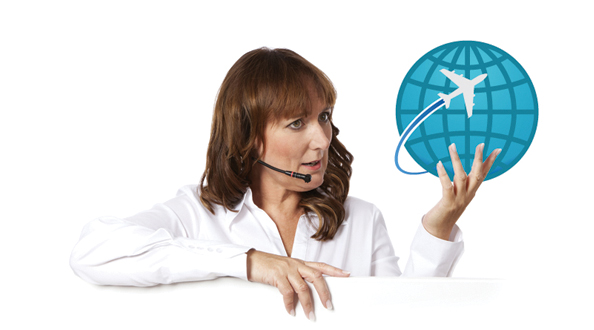Marinda Seisenberger: „Managing Diversity – Diverse Workforce to Drive Developing Germany”
„We asked for workers. We got people instead!“ (Max Frisch)
Nearly every day we read or hear reports or get involved in conversations concerning two main topics – lack of skilled labour in Germany and an ever-increasing, ailing wider Europe.
Germany is currently the “land of milk and honey” for employees from Southern Europe seeking work away from their distressed economies. A study just released by Germany’s Federal Employment Agency (BA) reveals that there are a far larger number of people with a Greek, Spanish, Portuguese or Italian passport working in Germany than there were a year ago.
Figures compiled by the agency show that by the end of May 2012, 117,700 Greeks, 46,000 Spaniards, 55,600 Portuguese and 232,800 Italians had jobs in Germany. Some two-thirds of the immigrants arriving in 2012 arrived from other European Union member states, including Poland (68,100), Romania (45,700), Hungary (26,200) and Bulgaria (25,000). Of the countries caught up in the euro crisis, Germany saw an increase of 12,000 from Italy, a 40 percent rise; almost 10,000 from Greece, a 43 percent increase; 9,000 from Spain, a 45 percent rise; and 4,000 from Portugal, a 43 percent increase.
This enormous increase in foreign labour to Germany should go a long way to alleviating the concerns of German companies about finding skilled labour to support booming German business. As most countries notice the “brain drain”, Germany sees a “brain gain”, with huge potential benefit as incoming workers are often well-educated and keen to get ahead.
Long gone are the days when “immigrant labour” meant: “While the harvest needs to come in, you’re a migrant worker. Afterwards, you’re just a bum”. Germany’s immigrant labour landscape is changing, and often immigrant workers are better educated than locals and ultra-keen to prove their economic value.
What needs to happen now is for Germany to make these people feel welcome, to embrace them and integrate them into a society and workplace that stands to be enriched both economically and culturally. In an article in SPIEGEL in February this year, there is talk of the „elite immigrant”. “These immigrants are working in university laboratories rather than on assembly lines. Instead of doing the work that others won’t, they are moving into corner offices, becoming senior physicians and designing products for others to assemble. They have better education and are more self-confident than previous immigrant generations, and for this reason see themselves as neither guests nor workers. Instead, they feel that they are European citizens and take it for granted that they belong anywhere in Europe, and that they will leave again if they find that they like it better someplace else”. (Spiegel, 25 February, 2013)
„The land flourished because it was fed from so many sources – because it was nourished by so many cultures and traditions and peoples.“ (Lyndon B. Johnson)
European companies are already using the diversity of their workforces as a competitive advantage and see in daily examples how this diversity acts as an overall success factor for their companies. A bus manufacturer from Neu-Ulm regularly calls on the KNOW-HOW of foreign employees, e.g. when they want to build a bus for Turkey, a Turkish engineer on the development team may be better than a German one in that he has a better feel for the needs of the local market and not only a focus on technical expertise.
Against the backdrop of an ever-evolving world labour market, companies need to recognise, use and reap the benefits of migrant and employee diversity in general. Leaders who go this route will leave their competitors behind as they discover the innovation power and economic sustainability that a diverse workplace has to offer.
—————————–
Über Marinda Seisenberger:

Marinda Seisenberger ist Speaker, Trainer und Coach und gilt als führende Expertin zum Thema „Diversity“. Der rote Faden „Vielfalt“ zieht sich auch durch ihren Karriereweg. In ihrer Heimat Südafrika leitete sie drei Institute für Erwachsenenbildung und führte die Abteilung Corporate Communications eines global tätigen afrikanischen Entwicklungskonzerns. 1999 wurde sie Partner einer Sprachschule in Deutschland. Unter dem Slogan „Take Your Brand Abroad“ unterstützt sie heute als Speaker, Trainer und Business Coach zahlreiche Geschäftskunden, darunter auch DAX-Unternehmen, im Ausland erfolgreich zu arbeiten. Sie ist überzeugt: Vielfalt ist ein strategischer Erfolgsfaktor und Innovationstreiber für Unternehmen. In ihren praxisbezogenen Trainings bringt Marinda Seisenberger Mitarbeitern die Bedeutung interkultureller Unterschiedlichkeiten und Vielfalt nahe und zeigt, wie unbewusste geschäftsschädigende Verhaltensweisen im Ausland erfolgreich zu vermeiden sind. Ihre mitreißenden Keynotes zu den Themen „Vielfalt im Flow“ überzeugen durch ihr Know-How und ihre Leidenschaft zu ihrem Thema. Marinda Seisenberger ist GSA Certified Professional Speaker und Mitglied der German Speakers Association (GSA). Mehr Informationen auf http://www.marinda-seisenberger.de.



